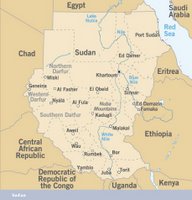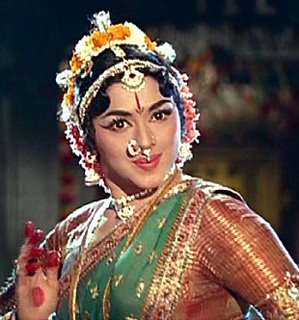The African continent is the poignant story of centuries of outside forces playing havoc with natives. It’s about the loot and control. Of slave traders and conversion to organized faith and subsequent annihilation of local cultural diversity. A ll the civil strife in the last century to now can be traced to this violent nature of history. This offcourse not to deny that local tribal differences were mostly active like for instance hutus or tutsis in central Africa. But the problems were accentuated by outside manipulations. Africa despite some extremely talented people and rich natural resources remains poorest place on earth for these very reasons. This was the case of most of Africa till recently. Things are changing many countries are now experimenting with democratic. The situation though remains very fragile with corruption and lack of institutionalized response to many crises. Unlike southern part of Africa which has colossal and sobering figures like Nelson Mandela rest of Africa is very much in open and vulnerable.
ll the civil strife in the last century to now can be traced to this violent nature of history. This offcourse not to deny that local tribal differences were mostly active like for instance hutus or tutsis in central Africa. But the problems were accentuated by outside manipulations. Africa despite some extremely talented people and rich natural resources remains poorest place on earth for these very reasons. This was the case of most of Africa till recently. Things are changing many countries are now experimenting with democratic. The situation though remains very fragile with corruption and lack of institutionalized response to many crises. Unlike southern part of Africa which has colossal and sobering figures like Nelson Mandela rest of Africa is very much in open and vulnerable.
Sudan’s case is not so different. The country is divided socio-cultural and linguistic line into North and South. It has predominantly followers of Islam religion but mostly concentrated in the North. Further the division is on the line of Arab and non Arab ethnic African population (But as one article points out they are similar in appearance despite these differences). Sudan is largest country in Africa and is the line where the Arab world merges into Africa. The origin of the problem is in this divide, offcourse accentuated by colonial past of segregation. The non Arab African population concentrated mostly in south has always accused cultural domination and attempt to political marginalization by the government at Khartoum, ruled by Arabic Sudanese. They also say that the government in the North is oppressing black Africans in favor of Arabs. There have been many uprisings and warlords so on, but crushed by the government. The radicalization of the North and imposing of sharia laws only worsened the matter.
Darfur is a province in Sudan of the size of France wherein the uprisings against the north most vehement with groups like SPLA and JEM organizing tribal force against the government during 2003. After string of military victories, government responded to rebellion by arming Arab "Janjaweed (which translates as either "a man with a horse and a gun" or the more sinister "devil on horseback")militia to clear civilian population bases of African tribes thought to be supporting rebellion. The government, it is alleged, to have recruited, paid, and armed more than 20,000 Arab militiamen gave support and impunity to the Janjaweed who have wrecked Darfur. Over 200,000 have died in Darfur since 2004 and over 2 million people have been displaced (The battlefield now extends into eastern Chad, Chad and Sudan accuse one another of supporting each other's rebel groups. The escalating proxy war between Sudan and Chad threatens to produce a new humanitarian catastrophe on b oth sides of the border). The problem aggravated by famine and drought, the ideas that uncaring Arabs in Khartoum had let the famine happen and then Darfuri Arabs had attacked African farmers began to gain credence. Although the UN has not accepted it (except reffering to’genocide is frighteningly real in Darfur’) but the killing has reached the proportion of genocide. The scale of the Janjaweed campaign led to comparisons with the Rwandan Genocide, a parallel hotly denied by the Sudanese government. Independent observers noted that the tactics, which include dismemberment and killing of noncombatants and even young children and babies and mass rape, are more akin to the ethnic cleansing.
oth sides of the border). The problem aggravated by famine and drought, the ideas that uncaring Arabs in Khartoum had let the famine happen and then Darfuri Arabs had attacked African farmers began to gain credence. Although the UN has not accepted it (except reffering to’genocide is frighteningly real in Darfur’) but the killing has reached the proportion of genocide. The scale of the Janjaweed campaign led to comparisons with the Rwandan Genocide, a parallel hotly denied by the Sudanese government. Independent observers noted that the tactics, which include dismemberment and killing of noncombatants and even young children and babies and mass rape, are more akin to the ethnic cleansing.
In the mean time African countries responded by setting up African Union Mission in Sudan (AMIS) to deal with Darfur crisis. It consisted of an inadequate force of 7000 troops with limited finance; predictably the killing in Darfur didn’t stop. The period of troop deployment comes to an end this month. The government of Sudan though continues to resist strong international diplomatic pressure for the UN to take control of the peacekeeping mission. With Sudanese President Bashir consistently expressing opinion against any UN force in the country despite the Security Council resolution.
In this context it is important to note that in 2005 United Nations summit adopted novel concept of a collective ‘Responsibility to Protect’ the worlds citizens even against their own government. After Rwanda, Kosovo and a host of other atrocities, and with the mass killings of Darfur staring them in the face, the leaders agreed at the U.N. Millenium Plus 5 Summit that state sovereignty could not be used to justify atrocities or to bar collective international action to protect those citizens. ‘Responsibility to Protect’ provides that diplomatic and other peaceful tools are tried first to bring the violations to an end, but where national authorities manifestly fail to protect their populations from genocide, war crimes, ethnic cleansing and crimes against humanity the U.N. Security Council could put military force for use. And with this and the adoption of the treaty establishing the International Criminal Court to hold individual leaders responsible, the future is not very bleak. The happening in Darfur needs awareness around the world- the intention of carrying this in the blog. However it need be added here that Darfur crisis is much more complicated than what is mentioned here particularly with rebel forces dividing.
Also the need of the hour is to strengthen UN. This is the only platform for interaction and discussion of issues concerning humanity. A strong UN will definitely provide legitimacy among nation and its people. UN might have been sidelined in recent times, in Baghdad and so on or have failed in its attempts like in East Timor but a beleaguered UN is more damaging.
 re also watched with lots of interest by elders when it used to come in TV. More than an actor wherein she was stupendously popular she was known for her dancing skills in classical forms (she was an accomplished Bharthanatyam dancer). It wouldn’t be farfetched to say that Padmini apart from Yjenthimala (not able to get the spellings!!) was largely responsible for introducing classical dance form into Hindi movies, and with that to north Indian mainstream entertainment. I particularly enjoyed watching ‘Kalpana’, an extravagant experimental dance-movie by Uday Shankar troupe, few years back (with Pt. Ravi Shankar...in audience, offcourse!!). What a grand way to start a career!!. Just brilliant. Incidentally her cousin Sukumari (in malayalam) and niece Shobana are also very popular.
re also watched with lots of interest by elders when it used to come in TV. More than an actor wherein she was stupendously popular she was known for her dancing skills in classical forms (she was an accomplished Bharthanatyam dancer). It wouldn’t be farfetched to say that Padmini apart from Yjenthimala (not able to get the spellings!!) was largely responsible for introducing classical dance form into Hindi movies, and with that to north Indian mainstream entertainment. I particularly enjoyed watching ‘Kalpana’, an extravagant experimental dance-movie by Uday Shankar troupe, few years back (with Pt. Ravi Shankar...in audience, offcourse!!). What a grand way to start a career!!. Just brilliant. Incidentally her cousin Sukumari (in malayalam) and niece Shobana are also very popular. 





